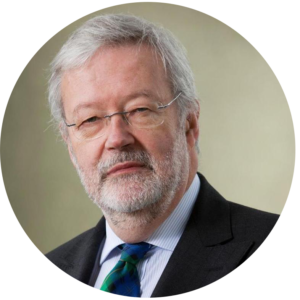
Professor Jim Gallagher
Professor Jim Gallagher is a Visiting Professor at University of Glasgow, Honorary Professor at St Andrews University and an Associate Member of Nuffield College, Oxford.
Here we go again? Probably not.
Nicola Sturgeon has fired a starting gun, but aimed at whom?
Not the people of Scotland, who are distinctly negative about a referendum soon, but her supporters who are keen on it. She knows 2023 won’t see a referendum. Holyrood hasn’t the power, and won’t get it. Her plan B is to have referendum legislation rejected in court. More blame for an undemocratic Boris. But her underlying problem remains voters who don’t want one.
Certainly Sturgeon needs to rebuild her independence case. Things have got much tougher since 2014. Rampant inflation leaves families deeply worried about paying the bills. The Scottish economy under her management has underperformed even the weak UK economy she criticises. The resultant shortfall in tax revenue will hit public services hard. War is devastating Ukraine, and disrupting energy and food supplies worldwide. Worse may still come. Brexit has changed the landscape, removing the safety net of the European single market which made economic separation less threatening.
Solving these problems is a lot of heavy lifting for independence to do to, but that’s the standard to judge her argument against. Yesterday’s was crude. Britain is broken under Boris. The unusually weak policy paper consisted of charts showing some other countries are richer, fairer, and happier. If Scotland were independent, we could be like them. Sturgeon announced not a single actual proposal for how, and simply batted away questions about the hard stuff – currency, public spending, borders and so on. Not telling you today, wait for later papers, she answered. The tactic is obvious: but the questions won’t answer themselves, and this approach probably won’t satisfy the nationalist fringes either. It’s not a real referendum campaign, and if her answers are at all realistic they may simply reject them.
There is an alternative. Referendums divide, not unite. By their very nature they split the country into opposing camps. Last time round, the Yes side found the process liberating, No supporters felt fearful and silenced. The resultant fissure has dominated our politics for a decade, but is more apparent than real.
Most people in Scotland aren’t partisans for one side or the other. They share common worries and aspirations, a decent standard of living, care for the elderly and sick, opportunities for the young and so on. They’re less interested in independence or union, than in what government can deliver for them.
Scotland’s First Minister could choose to build a consensus for change that most people might agree with. 75% of the population – including nearly half independence supporters – would prefer a reformed relationship in a better Britain to separation. But she remains a prisoner of her ideology, and her party.








